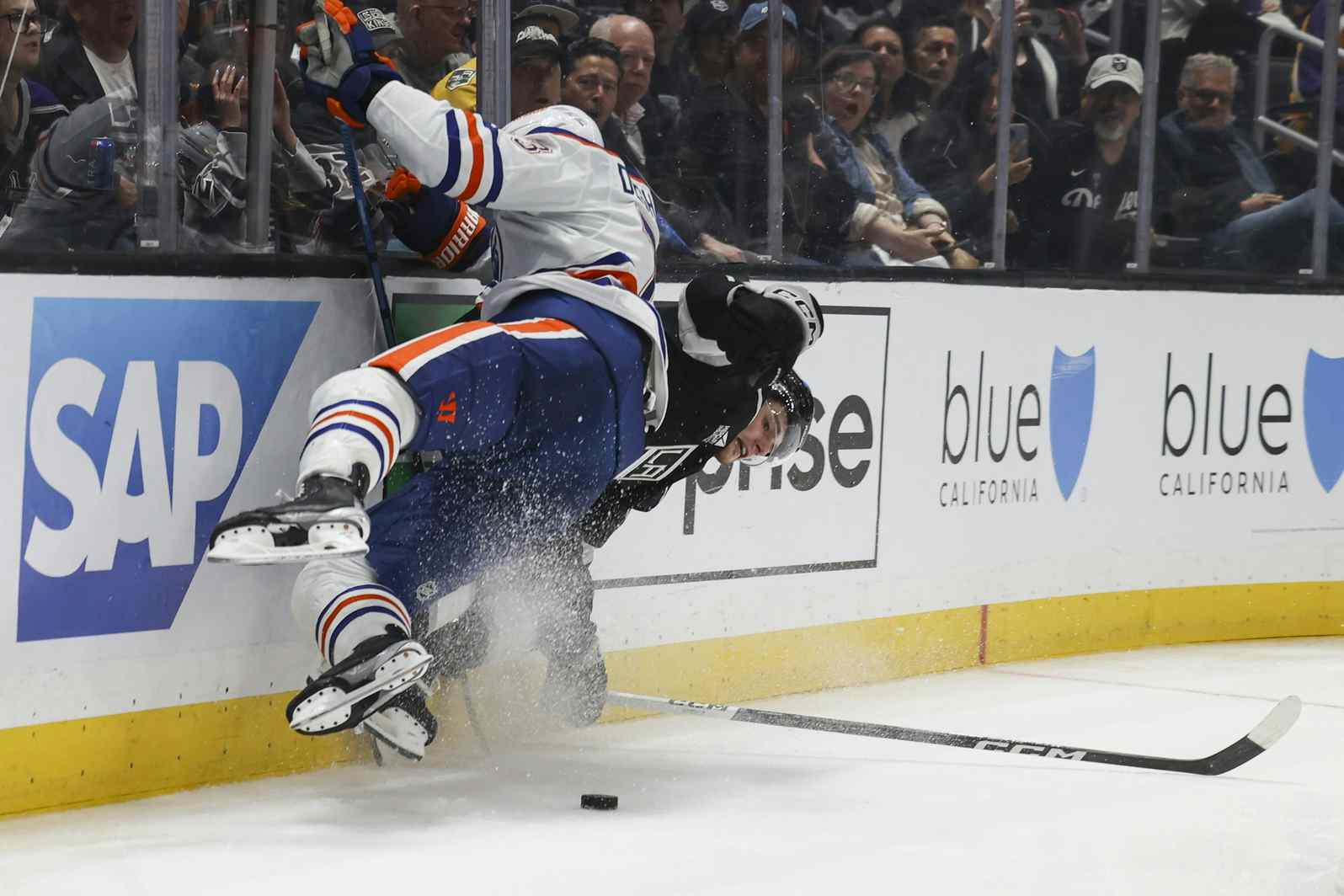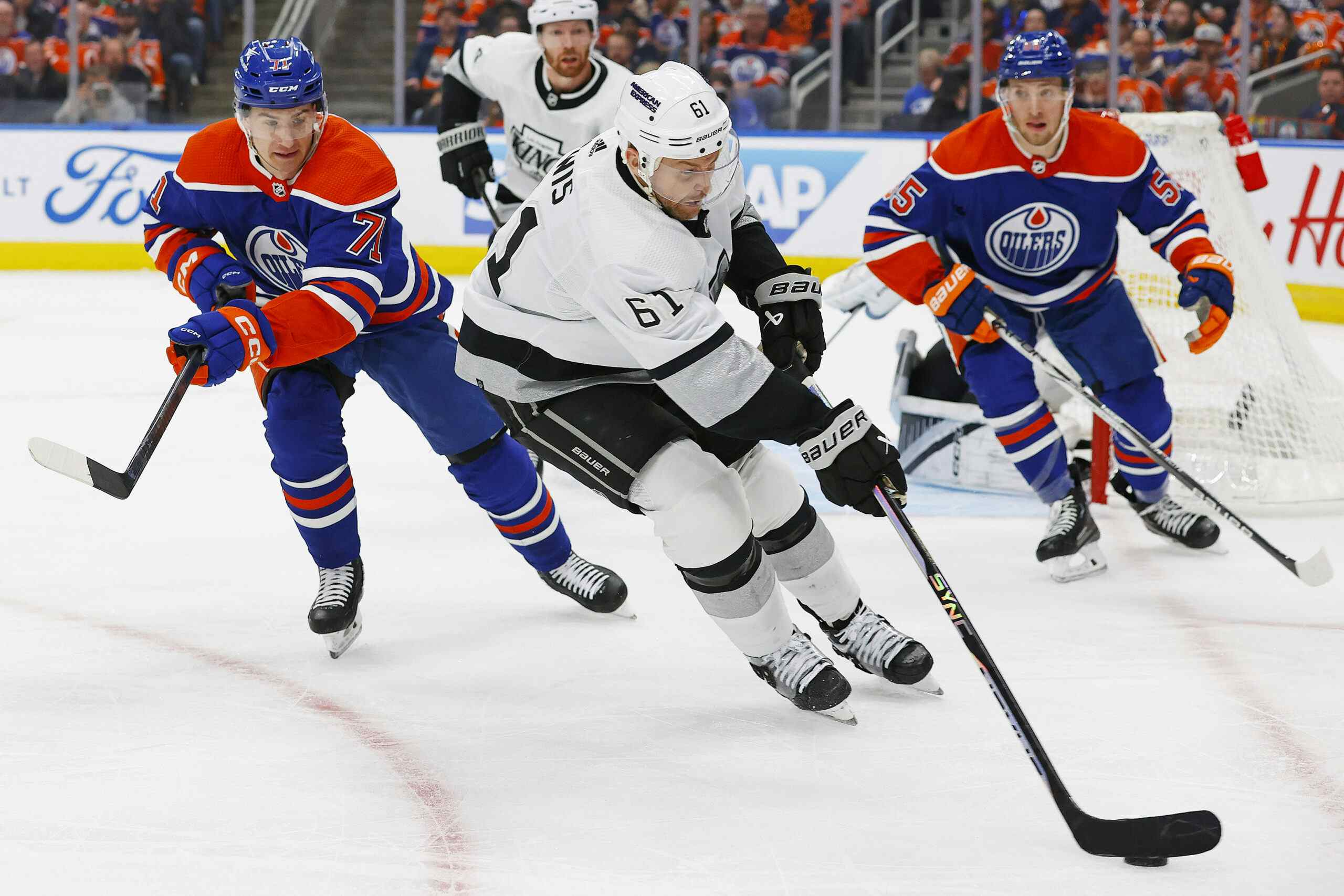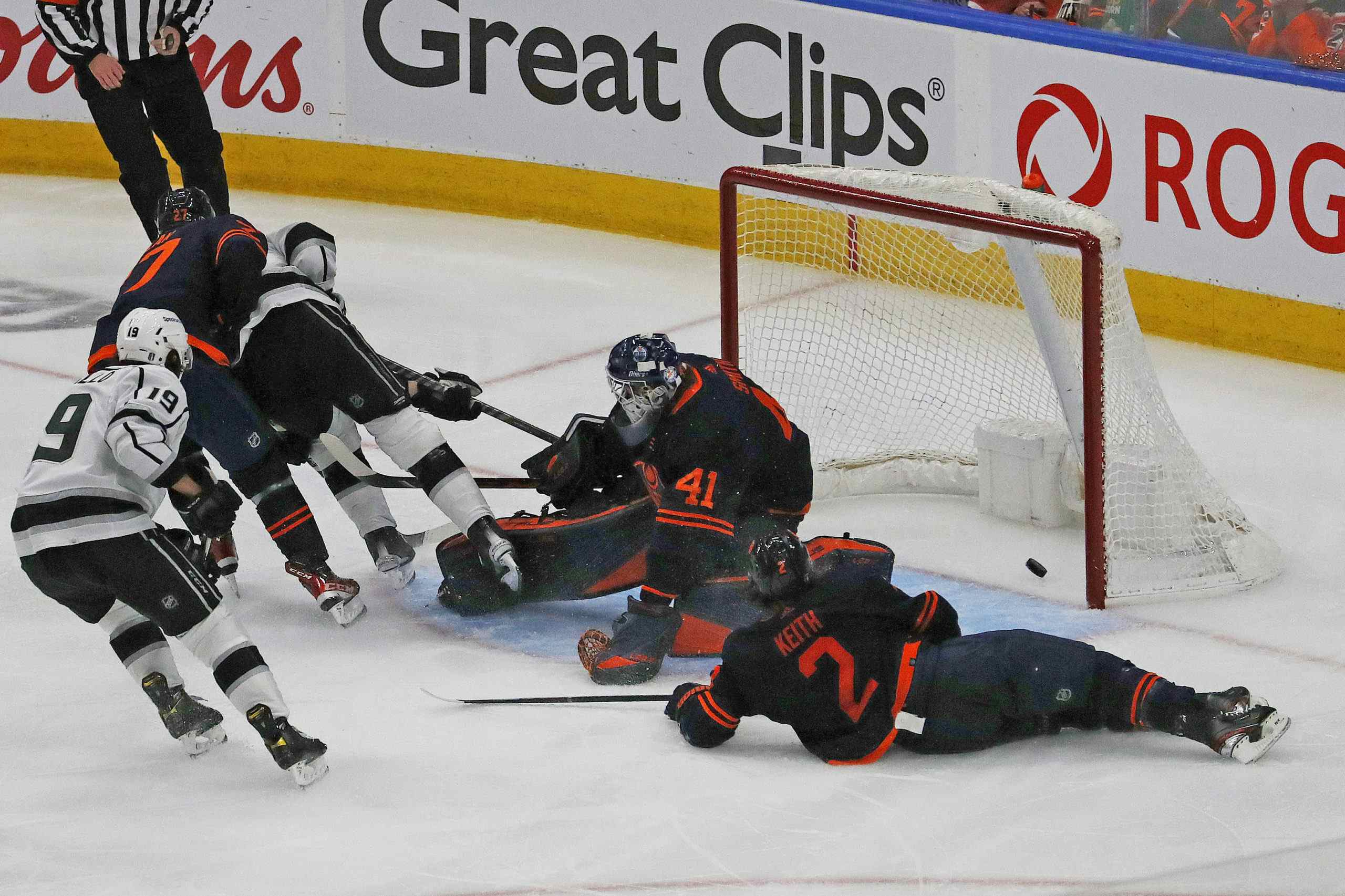What Happens if Devan Dubnyk Keeps Struggling?

Devan Dubnyk has struggled early in 2013-14. Through two games, his numbers are wretched, but most realize that two games is far too short a span of time to base a decision on. But what happens if the month of October goes by and he’s still struggling?
To try and figure out what it means, I went back to the NHL’s last full season (2011-12) and looked at all the goalies to play in at least 50 games. There were 22 in all; in each case I split their season into two segments – the first 10 games and the rest of the year.
What I found was that the first 10 games are somewhat predictive of success, but that they’re a terrible guide to go on.
The Chart

If we look at our starters’ first 10 games played, there’s a massive range of performance. The worst guy (Craig Anderson) posted a 0.881 save percentage through 10 contests. The best guy (Jonathan Quick) had a 0.941 save percentage. That’s a 60-point spread in save percentage. The gap the rest of the way was just a hair over half that, ranging from the worst (Corey Crawford, 0.899 save percentage) to the best (Mike Smith, 0.931 save percentage). The old maxim ‘you’re never as good as you look when you’re winning and never as bad as you look when you’re losing’ is borne out here.
The first 10 games do matter, in the aggregate; just not a lot. Looking at the direction of our trendline, we can see that guys who do better early tend to do better late, and guys who do worse early tend to do worse late. How much worse? Well, a guy from the top-third of this group in the early going (they had an average save percentage of 0.932) posts a 0.921 save percentage over the rest of the season. A bottom-third guy (average save percentage of 0.894 through 10) posted a 0.915 save percentage the rest of the way. There’s some built-in bias (obviously, guys who keep floundering stop getting games at some point) but it does show that a massive gap early generally means a smaller gap later.
It’s also, unsurprisingly, entirely possible for a goalie to rebound from a lousy start. Anderson, mentioned above, was a 0.920 save percentage goalie over the rest of 2011-12. Robert Luongo went from a 0.894 save percentage over 10 games to a 0.925 save percentage the rest of the way. With the exception of guys with extenuating circumstances (age, injury) it’s always a better idea to lean on the long-term track record than it is a 10-game stretch, because even very good goalies have terrible 10-game stretches. Good goalies have them less frequently than bad goalies, because there is talent involved here, but they still have them.
Devan Dubnyk

And here’s where we tie this back to the Oilers.
Devan Dubnyk hasn’t had 10 bad games; he’s had two. But given the clamour that’s already arisen, it’s probably fair to say that eight more bad games could finish him as the Oilers’ starter. They shouldn’t. It’s difficult not to overreact to short-term trends, and all too easy to look at what’s happening right now and say a change has to be made. The fact is, however, that if the Senators or Canucks had dumped their guy with the good track record 10 games into 2011-12 they would have been making a huge mistake. The best thing they could do was to completely block out those 10 games and focus exclusively on the long-term record.
In Dubnyk’s case, the long-term record is good. It’s not great, and it’s not terrible, but it’s good. He’s been a 0.915 save percentage goalie since making the full-time jump to the NHL in 2010-11; of the 32 goalies to play at least 100 games in that stretch that ranks tied for 18th (one point higher would put him in a tie for 15th). He’s not an elite goaltender, and he’s not a poor starter; he’s right around the league average.
If the Oilers decide they want an elite goalie, that’s well and good and they’re welcome to try and grab one. But dumping Dubnyk – even if he struggles not just through two but through 10 – for another middle-tier goalie like Jonas Hiller or James Reimer (both posting a 0.915 save percentage since 2010) or even Ryan Miller (0.917 save percentage in that span, 0.915 save percentage career) would be incredibly stupid.
Recent articles from Jonathan Willis





